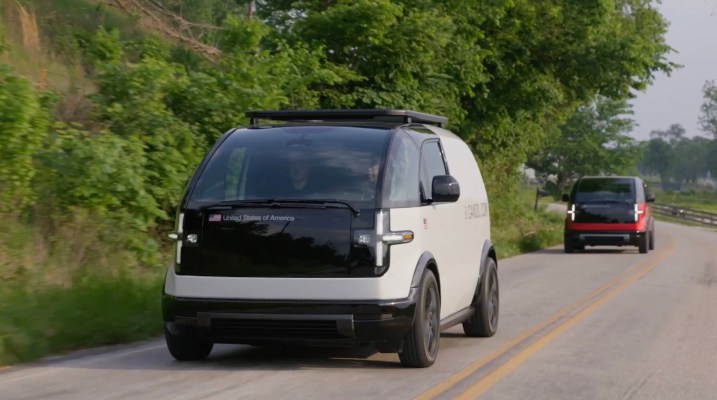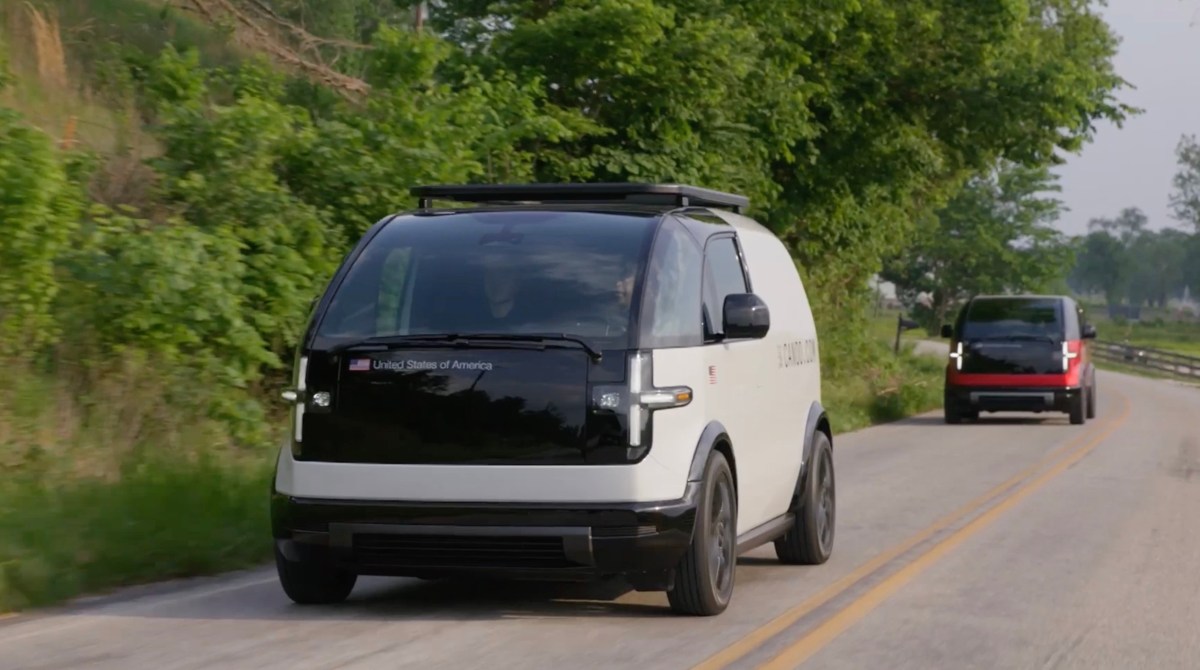[ad_1]

Bankrupt commercial EV startup Arrival has sold some of its assets, including advanced manufacturing equipment to Canoo, another struggling startup trying to build and sell electric vehicles.
The acquisition, which was touted as a cost-saving measure that will reduce capital expenditures by 20%, comes as Canoo struggles to move beyond prototypes towards commercial production. Canoo said the purchased assets, packed into more than 20 container ships, will be sent to the company’s facility in Oklahoma. The company previously acquired all of the new, and “like-new” assets owned by Arrival’s business unit in the United States. It’s unclear if Canoo also acquired any of Arrival’s IP.
Canoo did not respond to a request for comment.
Arrival announced in January that it planned to sell off assets and IP from its UK division after filing for bankruptcy protection in the UK. Arrival, once valued at more than $13 billion and backed by Hyundai and UPS, claimed it was going to revolutionize the way electric vehicles by building them in compact “microfactories” that could be located in city centers.
Those plans, which included an electric bus, vans and even a purpose-built car for Uber, fell apart as it burned through cash and a number of executives. Arrival restructured at least three times — in each instance, laying off workers — and shifted its focus to the United States and away from the U.K. market to preserve capital. Arrival never produced any commercial vehicles at scale and its market valuation is now around $7.7 million. After years of volatility and a share price that lost nearly all of its value, the company filed for banpruptcy.
Canoo, meanwhile, has had its own struggles. After going public via a merger with a special purpose acquisition company, the company struggled to produce its EV, an eye-catching design based on a “skateboard” architecture that houses the batteries and the electric drivetrain in a chassis underneath the vehicle’s cabin.
Canoo previously reported it has more than $1 billion in its sales pipeline, a figure largely attributable to a deal with Walmart to purchase 4,500 units, with an option to buy up to 10,000 units. However, the company has struggled to convert those sales into deliveries.
Canoo is essentially a pre-revenue company burning through cash and has had to revert to stock splits and issuing more shares to stay afloat. Last year, the company moved to a different tier in the Nasdaq Exchange after its stock price languished below $1 and triggered a delisting notice.
[ad_2]
Source link
